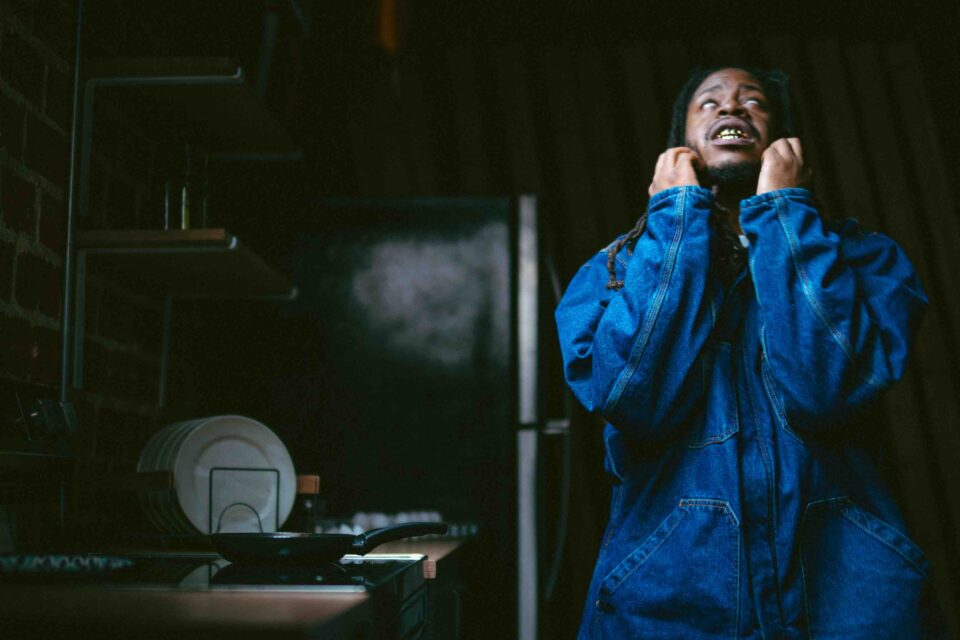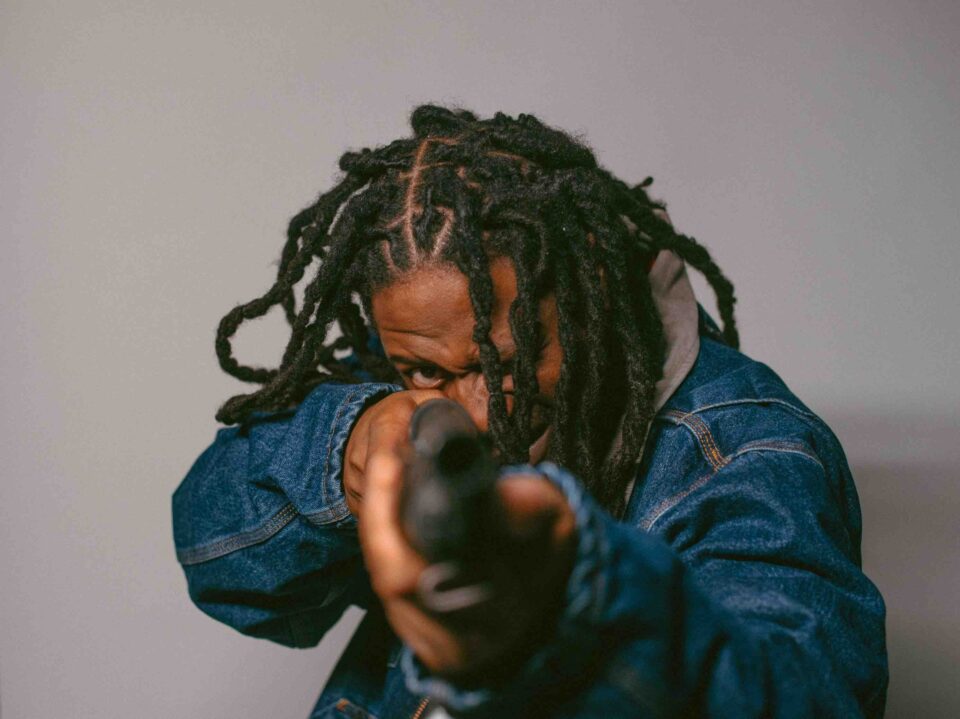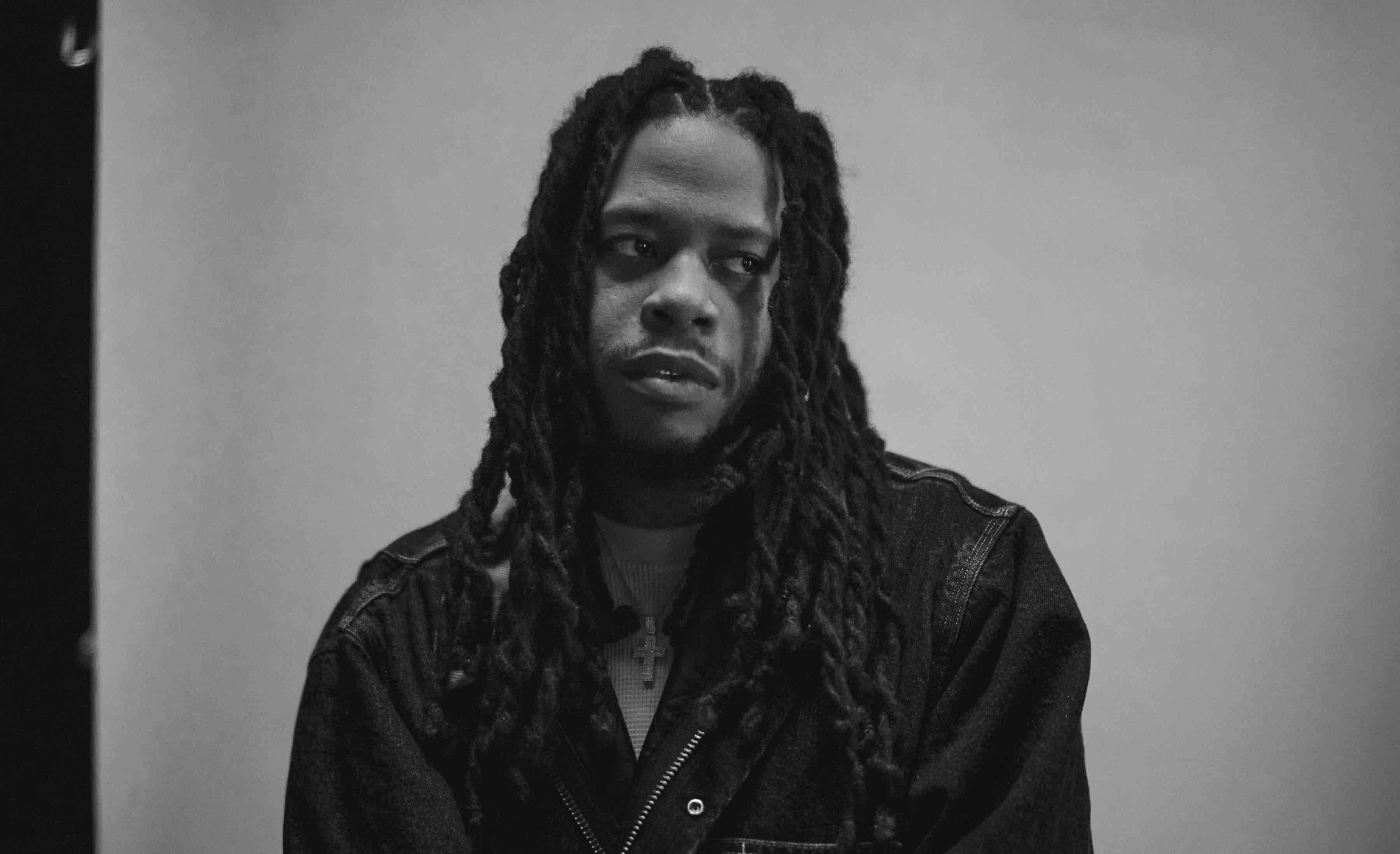ICECOLDBISHOP has been sitting on Generational Curse for a while. Four years to be exact. Beginning the album in 2018 and completing it a year later, the LA-born emcee has been waiting for this LP for what feels like an eternity. This is probably why he comes out guns blazing on the opener “FULL FLEDGE” and doesn’t let his foot off the gas until closer “CURSED.” Generational Curse is an exemplary examination of how the streets can inspire and destroy, break hearts, and bring people together.
BISHOP tells his own history on the album, but he also taps into the history of West Coast rap to create an album both indebted to his home region’s style and something completely and thrillingly unique. Though Generational Curse is a front-to-back inspiring, often-surprising listen, the thesis of the record can be summed up within its first two minutes. On “FULL FLEDGE,” BISHOP raps, “My daddy died back in ’94 and we still cryin’ / Gangbanging 50 years old then we still dying.” This is an album that reckons with generational trauma and moves forward at the same time: Salute the past and honor its history, BISHOP seems to be saying. Look backward to help create the truth of the future.
The influence of Kendrick Lamar’s good kid m.A.A.d. city is obvious, as BISHOP will be the first to admit. It was released when he was still a teenager, and, as he explains, it was one of the first albums from someone that came from his world to hit the mainstream in a way he could understand. Generational Curse is a pocket symphony version of that album, a take on Lamar’s opus that’s less hellbent on weaving a narrative arc than putting realism to paper. At its core, it’s a career-defining statement from an artist who’s finally getting a chance to show just how skilled he is.
What’s it like revisiting these stories that were such a part of your life a few years ago? Has your perspective on them changed?
It’s really cool having a lot of people in my life who know these stories. A lot of people who know a lot of my story, who have participated in my journey, and have been there with me throughout this whole process, are proud of me finally getting it out into the world. It’s not just my excitement, but their excitement as well. It really means everything, honestly.
And for some of the people who are no longer with you, it’s a way to honor them as well.
It definitely is. My father passed away when I was young, so I had a stepfather throughout my life and he actually passed two years ago. I’ve always thought about celebrating this project with him. I got a billboard coming up in a neighborhood that’s right by his crib. I never really imagined putting out the project and him not being here. So it’s a commemoration.
“A lot of times in aggressive music people talk about the effect. A lot of people don’t try to explain the cause. So when I make records I explain the cause and the effect.”
It’s a lot of different emotions, especially with stories that you processed through songwriting. Now you’re talking about the album to people like me and you’re having to revisit them from a whole different mindset.
From an artistic perspective, sure, but more so from the human side of it, too, explaining exactly what these things mean, or giving an idea of what these things mean. Hopefully anyone who’s going through these situations, dealing with what they’re dealing with from the same environment that I’m from, I can offer a small sense of clarity in some of these conversations I’m having through these records.
Could you talk about dealing with some of the stories that you rap about on the project? Was it traumatic revisiting some of the harder and more tragic aspects of this record?
Not traumatic, but putting stuff in words you end up stumbling upon a lot of new discoveries not only about the story, but about yourself. It’s interesting revisiting a lot of these stories. It’s not difficult anymore, but I think that’s a part of growth. It’s not as difficult because of the journey that I’ve been on. It’s a little easier for me to deal with some of these things in the way I’ve matured over the years.

One thing that becomes clear when listening to the record is how good of a storyteller you are. Did you grow up reading books?
Nah, I actually love movies and I think about my songs in a cinematic sense. A lot of my favorite artists’ best lyrics are about the details that a record can explain, or a line that could explain something without actually saying so much. You could say one line, but the line is so complex that it creates a lot of different imagery in your mind, as if you’re sitting in the front seat of a theater experiencing a story.
I feel like a lot of times in aggressive music people talk about the effect. A lot of people don’t try to explain the cause. So when I make records I explain the cause and the effect. You get a different perspective, because I’m giving more insight on the details of the situation instead of me just saying what we did. I talk about how we got there and why we did it.
“[Kendrick] was the first time we saw an artist from where we’re from who felt accessible or close. I grew with him from the beginning of his career.”
What’s your relationship like to LA rap in particular? At the end of the day, Generational Curse is unique to the city. Is that something you were setting out to do?
Of course. I wouldn’t be making records if I didn’t try to enter that conversation. Growing up, I was listening to Doggystyle, all of the Cube records, the Ice-T records, everything Pac, Death Row, and Eazy-E, all the way down to almost every West Coast artist that we look at as a pillar on this side. They all have projects that define an era.
It moves from generation to generation. It’s a lot of history, but I don’t just limit it to LA, either. I look at the West Coast as a whole. Sometimes I look at California as a whole, too. With that being said, you go up to the Bay, you look at Too $hort, you look at E-40—these artists all have legendary projects. And if you tapped into the West Coast culture, Nipsey’s Victory Lap was in that world. If you’re tapped into the culture, then on this side you realize a lot of the artists that come before me have legendary projects.
Who first introduced you to music?
My mom, for sure. Growing up in LA, my mom put me onto all of the soul records. So when you listen to songs like “LAST NIGHT” and you hear the Macy Gray influence, or the Erykah Badu influence, that’s for moms. She listened to all the neo-soul, she listened to everything. That’s my favorite genre. I’m old school.
You were 18 or 19 when good kid m.A.A.d. city came out. This album sounds as if that project was commissioned for a Tarantino movie or something. What did that record mean to you growing up in LA?
It was everything. That was the first time we saw an artist from where we’re from who felt accessible or close. I grew with him from the beginning of his career. It was dope to see the whole introduction to the TDE period.
Sidebar, you just gave me one of the greatest compliments: Tarantino. Yeah, that’s one of my favorite directors. I wanted this album to feel like a Tarantino, Jordan Peele–esque film.
“I wanted this album to feel like a Tarantino, Jordan Peele–esque film.”
I really dig the way your album sounds like you love music.
I love music. I love art. I’m a fan of soul. Not the genre, but if your music has soul in it, I’m there. I be listening to everything all the time. I’m tapping into it because it all offers perspective and helps me creatively. As long as it has soul.
It reminds me of how artists like Booise and Wayne are often described as modern-day blues artists.
We don’t think about it that way, but we’re all making blues music. It’s modern-day blues. Whether you’re on some Rod Wave singing shit or not, it all has that soul.
How exciting is it to have a clear deck to start on the next thing? Have you already been itching to get back in the studio and work on the next project?
I was in the studio the day my album dropped. I’m ready to work. I feel reinvigorated. I feel like I got a huge monkey off my back and it’s time to run around the zoo. I feel like a new person, definitely.
This is my first full body of music as ICECOLDBISHOP. This is the first time I’ve ever been able to look at the opinions of those who are digesting a full project from me. I’m excited when I read all of the great reviews. I’m excited by all of the AOTY talk, so that makes me want to go in and create a better project. I’m happy about this, but I want my next album to be even more captivating; a better piece of art. FL








